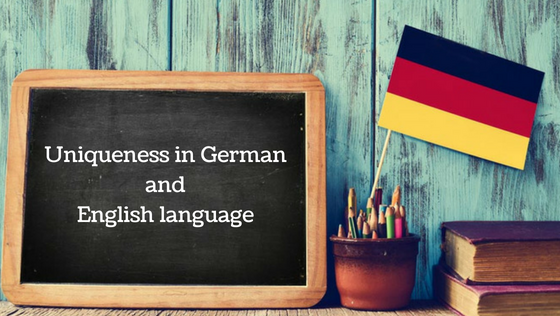
Articles usage:
English Language has two articles “The” and “a or an” used before to the noun or pronoun. “The” is used for a specific noun whereas “A or An” is used for nonspecific noun. The best example for “the” usage is “The sun” and “A or An” is used for “A Book” which means the sun is the specific term and book is the general term. Any type of book is called as the book, whereas Sun always means one sun not any sun. In German language “Der”, “Das” or “Die” are some of the articles used as like the usage of “the, an and a”. Der is used for female, Das is used for male and Die is used for neutral. The noun is not segregated as per the specific or general, but there is the difference between singular and plural noun. Some of the example words for singular and plural are “Die Stadt” = the city; “Die Städte” = the cities, “Das Dorf” = the village; “Die Dörfer” = the villages. When searching for language training it is important to see the study material and German Language Classes in Bangalore provides good study material with the help of the expert trainers.
Verb usage:
Verb usage is not difficult with the German language. If Das is followed by a verb like “this, that, those or these” then Das is used not Der is used. For example “Das ist ein Stift” (this is a pen), “Das sind Hosen” (these are pants) are the verbs with male noun. Here the female noun is not used. “I sit” or “He sits” in the English language would change to “Ich sitze” or “Er sitzt” in German language. Verb usage is not subject to tangle in the German language. Group discussion and peer approach are the positives in the German Language Courses in Bangalore. German language training is highly needed in cosmopolitan cities and tech city.
Adjective usage:
Adjectives are a little bit tougher in German language. German adjectives need specific endings with respect to the type of noun. A 6 feet tall man in English is translated into German as ein 180m grober Mann [masculine gender], a little mouse is translated as Eine kleine maus [Femenine gender], the good kid is translated as das gute kind [neuter] the good children are translated as die guten kinder [plural], a good boy is translated as guter junge [strong adjective] are some of the examples for the adjectives in the German language. Weak adjectives are influenced by the gender, whereas strong adjectives are used separately without prefix. . For the sentence “Ein rotes buch” which means “a Red Book” the adjective is neutral. So Das is added to the prefix. “Das rote buch” which means literally “the red book”. Weak and strong inflection, strong inflection, mixed inflection, weak inflection, no inflection are some of the inflection in the adjective usage.
Vocabulary usage:
Let me see some of the interesting vocabulary that is used in the English language and German language. Wanderlust, which means longing to travel, fest which means feast, celebration or party, Angst which means fear, depression, or anger, Waltz which means feast, celebration, party, Rucksack which means a bag with shoulder straps carried on someone’s back, Kinder garden which means young children to formal education, hinterland which means an area lying beyond what is visible, schadenfreude which means pleasure derived at someone’s misfortune, hamster which means a type of bread roll, bagel which means a type of bread roll, spritz which means spraying liquid in quick, cobalt which means an element. These words were originated from German language and came into English. There are so many ways to remember vocabulary in German language which creates enthusiasm to join the German Training in Chennai.
Read More
Spoken English Classes in Chennai | IELTS Coaching in Chennai



